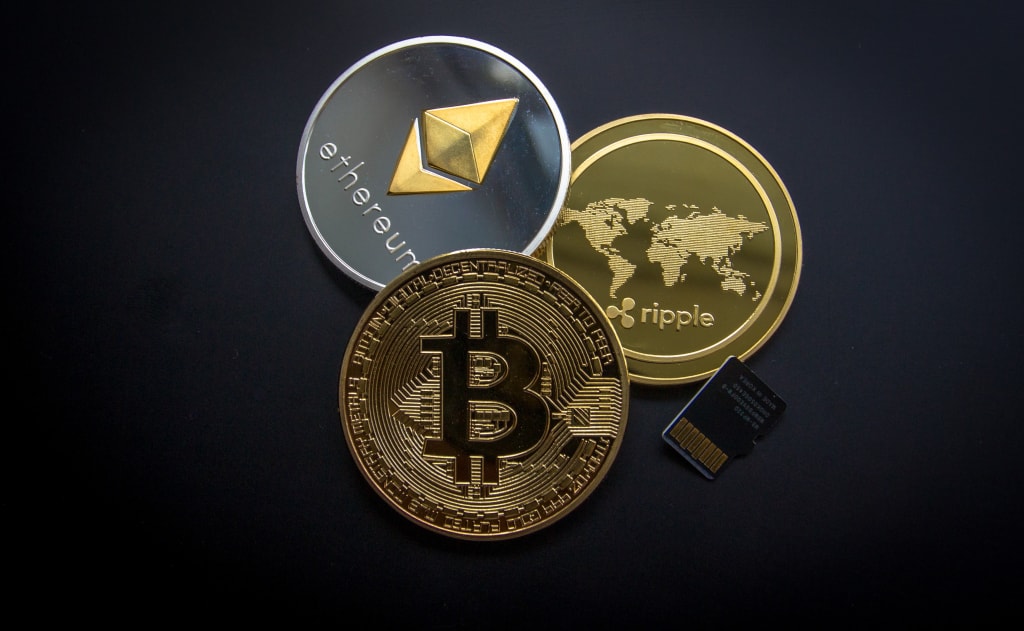
The world of cryptocurrencies, including NFTs, blockchains, and web 3.0, is being accused of being both a revolution for the internet and the biggest Ponzi scheme in human history. Despite eye-watering numbers and grandiose claims about their potential, cryptocurrencies have been described by some as decentralized Ponzi schemes. NFTs, in particular, have gained popularity, with even famous internet memes being sold for millions of dollars. However, skeptics warn of a mania driven by greed and mass delusion. Cryptocurrencies are being used to purchase these NFTs, and the purchase of one of the biggest sales in digital art history was made through cryptocurrency. Critics say that NFTs are just a component of a much bigger machine with a lot of moving pieces, and it may be a giant scam with large names, brands, and venture capital firms backing it, knowingly or not.
While the hype around NFTs and cryptocurrencies continues to grow, many are left wondering what this all means and whether it's worth investing in. On one hand, there are those who see it as a revolutionary technology that could change the way we do things in countless industries. On the other hand, there are those who believe it to be nothing more than a giant Ponzi scheme.
The world of cryptocurrencies and NFTs has been accused of being both of these things, with labels such as "decentralized Ponzi schemes" and "scams" being thrown around. Despite the accusations, the market for cryptocurrencies and NFTs continues to grow, with some pieces of digital artwork selling for millions of dollars.
One such piece is a work by digital artist Michael Joseph Winkelmann, also known as Beeple, which sold for $69.3 million at auction in March 2021. This sale marked a milestone in the history of digital art, as it was the first NFT ever sold at auction. NFTs, or non-fungible tokens, are digital assets that are unique and cannot be exchanged for something else. They use blockchain technology to verify ownership and authenticity.
NFTs have become a popular investment opportunity, with many people purchasing them as a way to invest in digital art or other unique digital assets. However, there are also concerns that the market is being driven by greed and speculation, with many people investing in NFTs without fully understanding what they are buying.
One of the most significant criticisms of NFTs is that they are contributing to the growing problem of cryptocurrency-related scams. There have been numerous instances of people losing money after investing in fraudulent cryptocurrencies or NFTs. The decentralized nature of these investments makes it difficult for authorities to regulate the market effectively, leaving investors vulnerable to fraud.
Despite these concerns, the market for NFTs and cryptocurrencies continues to grow. Many investors see the potential for significant profits, while others believe in the revolutionary potential of blockchain technology. Whether the market will continue to grow or eventually collapse remains to be seen, but for now, it is an area that is attracting a lot of attention and investment.
Overall, the world of NFTs and cryptocurrencies is complex and rapidly evolving. It is essential to research thoroughly before investing in these assets, and to be aware of the risks involved. While there is potential for significant profits, there is also a real danger of losing money, so it's crucial to approach these investments with caution.
Another notable feature of cryptocurrencies is that they operate on a decentralized system. This means that there is no central authority, such as a bank or government, that controls the supply, distribution, or value of the currency. Instead, transactions are recorded on a public digital ledger called a blockchain, which is maintained by a network of users around the world.
One of the key benefits of this decentralized system is that it provides a high degree of security and transparency. Transactions are verified and recorded by the network of users, which means that there is no central point of failure or vulnerability that can be exploited by hackers or fraudsters. Additionally, because the ledger is public, anyone can view and audit the transactions that have taken place on the network, which makes it much more difficult to engage in fraudulent or illegal activities.
However, there are also some significant drawbacks to cryptocurrencies that are important to consider. One of the most significant is their volatility. Because cryptocurrencies are not backed by any physical assets or regulated by any central authority, their value can fluctuate wildly based on a variety of factors, including market demand, investor sentiment, and regulatory changes.
This volatility can make cryptocurrencies a risky investment for individuals and businesses alike. While some investors have made significant profits by investing in cryptocurrencies, others have lost substantial amounts of money due to sudden drops in value. In addition, because cryptocurrencies are not yet widely accepted as a form of payment, they can be difficult to use for everyday transactions, which limits their utility for many people.
Another challenge facing the cryptocurrency industry is regulation. Because cryptocurrencies operate outside of traditional financial systems, they have largely existed in a legal gray area. However, as cryptocurrencies have become more popular and mainstream, governments and regulators around the world have begun to take a closer look at how they should be regulated. This has led to a patchwork of regulations and laws in different countries, which can create confusion and uncertainty for businesses and investors.
In conclusion, cryptocurrencies have the potential to transform the way we think about money and financial transactions. They offer a number of unique benefits, including fast and secure transactions, low fees, and a decentralized system. However, they also come with significant risks and challenges, including volatility, limited acceptance as a form of payment, and regulatory uncertainty. As the cryptocurrency industry continues to evolve and mature, it will be important for investors, businesses, and regulators to carefully consider both the opportunities and risks associated with these new digital currencies.
About the Creator
Bob Oliver
Bob is a versatile writer & communicator passionate about exploring diverse topics & perspectives. I have written for various media outlets. And I believes in using words to inspire positive change. #writing #communication #passion






Comments
There are no comments for this story
Be the first to respond and start the conversation.